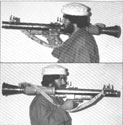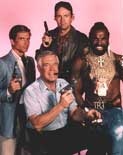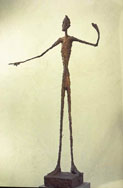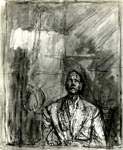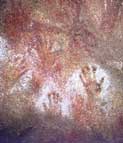existentialism and art
for my fine art degree dissertation
i investigated 'existentialism and art'.
it's was an investigation into
how a philosophy or mode of belief affects the process
of creating art. can you make work that is of a philosophy?
you can read it here.
thought process
a few of my thoughts
are strewn about the site, but i thought it might be
worth focusing them in one place.
the thought
process behind art i find as important, if not
more so than the execution of the final piece. i keep
sketchbooks
so that i can work through an idea. this i equate to
journey across land rather than getting on a plane and
trying to get there directly -
'it
is important to take the less direct route as you never
know when you'll get lost and find something more interesting.'
art terrorism
and a-team cabbage tanks
i heard a quote at art college
that has stuck with me since. i have no idea who said
it. it went along the lines of
"an
artist must be like a guerilla terrorist and be able
to use all their tools at their disposal to get the
job done."
i prefer to think of this in a
slightly less political stance with the tv series the
a-team
as an example:
'if you're locked in a cabbage
factory surrounded by cabbages, whilst evil car salesmen
are waiting with ak47's outside, you would obviously
make a cabbage throwing tank. rather than trying to
build a gun out of cabbages.'
what i'm trying to say is sometimes
i have an idea for a piece of work and as painting is
my first medium i try and make it fit. however it is
obvious on reflection that the idea won't work in this
medium and it should be expressed in another. i
should use the medium best for the idea.
the figure
the figure has always interested
me, it is so versatile and relevant to us all. it can
be used to say whatever you want to say.
is all art based on the figure? as it is created by
a hand attached to a body. or am i missing the
point. when will robots learn to paint?
photography also interests me
as it captures precisely the dimensions and colours
of light that comes through a lens. i would like to
capture what the eye sees. is
it possible to alter a photograph so it presents the
world as the eye really does?
'what I say and what you hear
are two different things'
i like the painter and sculptor
alberto giacometti for this reason, his figures are
not as a lens would represent them, but they are how
the eye sees them. empirical observation.
chance
francis bacons' thoughts on the
process of painting also interests me. the element
of chance in his work was extremely important,
he was a gambler and i think it was living on the balance
of winning or losing that was so important in his painting.
he asked his studio cleaner to
throw a lump of paint at one of his canvases so it could
be totally random and make his work into something that
he could not. as even if he attempted to be random it
would still turn out as a choice.
like bacon i believe there should
be an element of chance in creating a work. somewhere
for the work to grow, to be able to make a judgment
with the brush in your hand is perhaps the most important
element in the execution of a piece. if it is already
preordained what is the point of creating it?.
is it
this that separates art from craft ?
painting is dead said
someone who's never painted
some art historians say painting
is dead and bounce it around art schools, particularly
where there are dedicated painting courses.
i find it funny that a medium
that has been evolving since the dawn of man has suddenly
died out in our life time. it could be (.....humour
me here) that painting could evolve with
technology as it always has done: from the camera obscura
to the camera of degas time, to the digital age we are
now entering.
so why will it not evolve with
the new flexibility that is presented to an artist in
these exciting times?
words
writing thoughts centers ideas.
ideas change but printed words
don't.
words stay ideas fade away.
|
